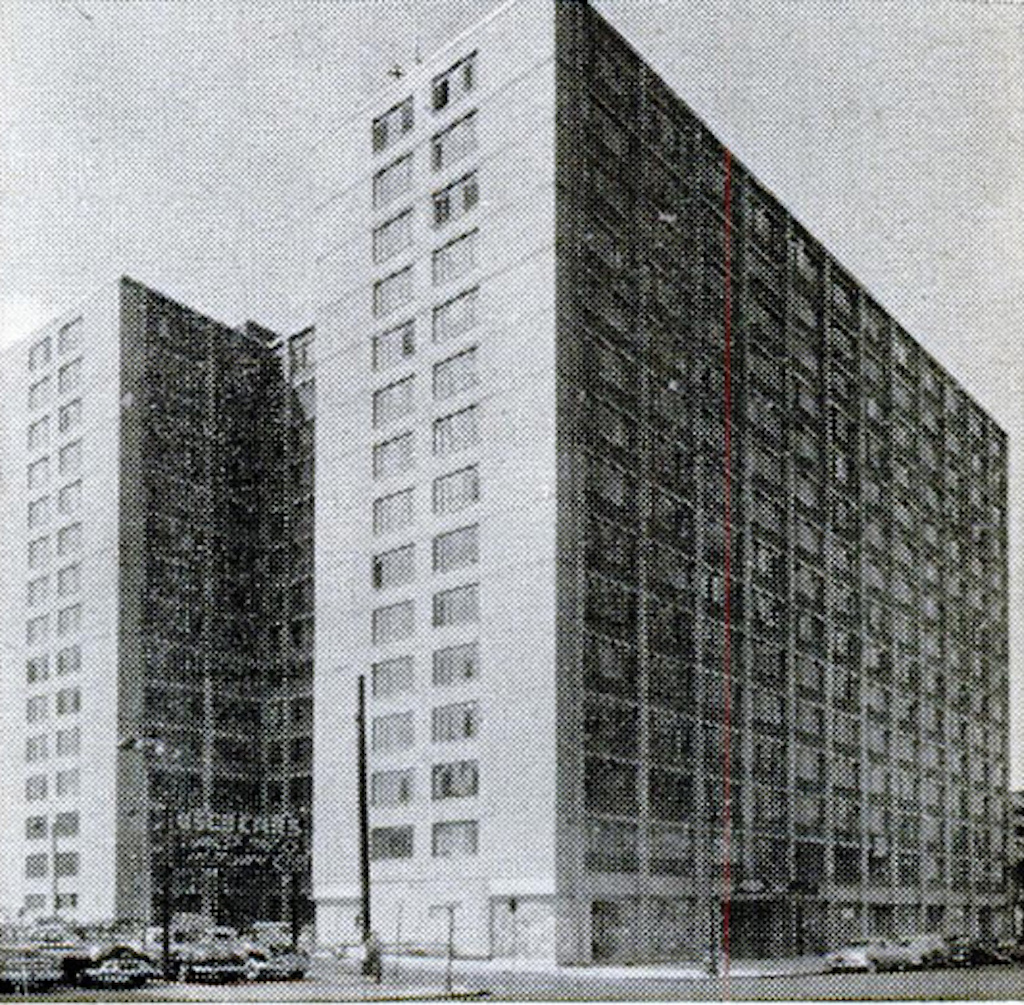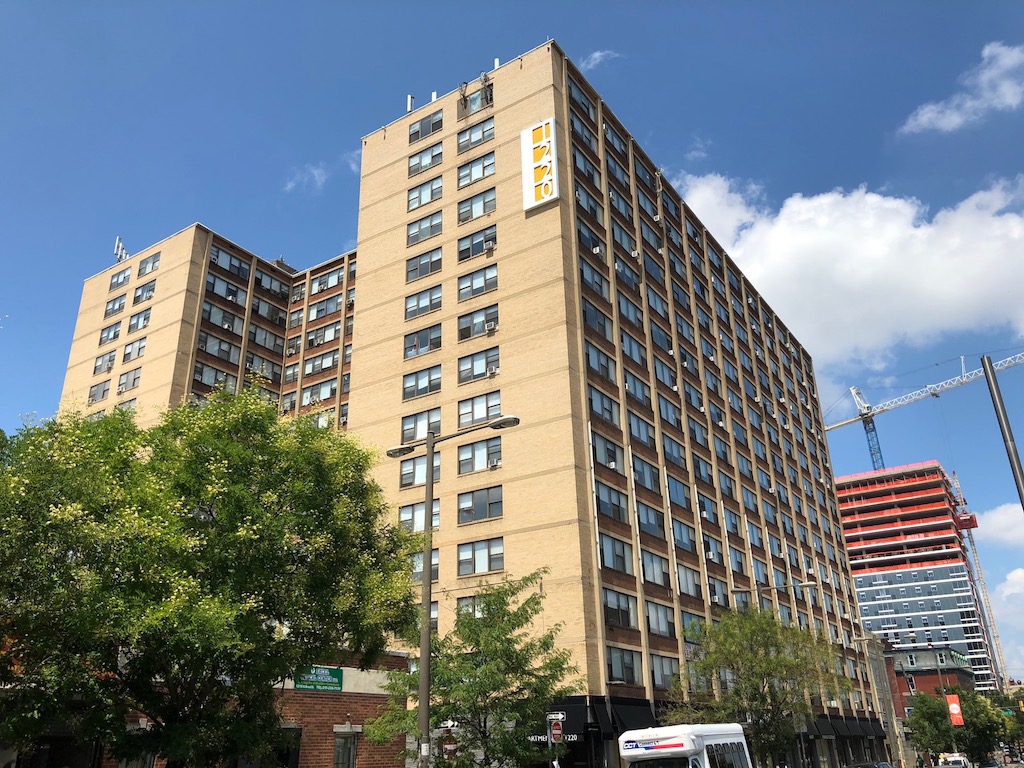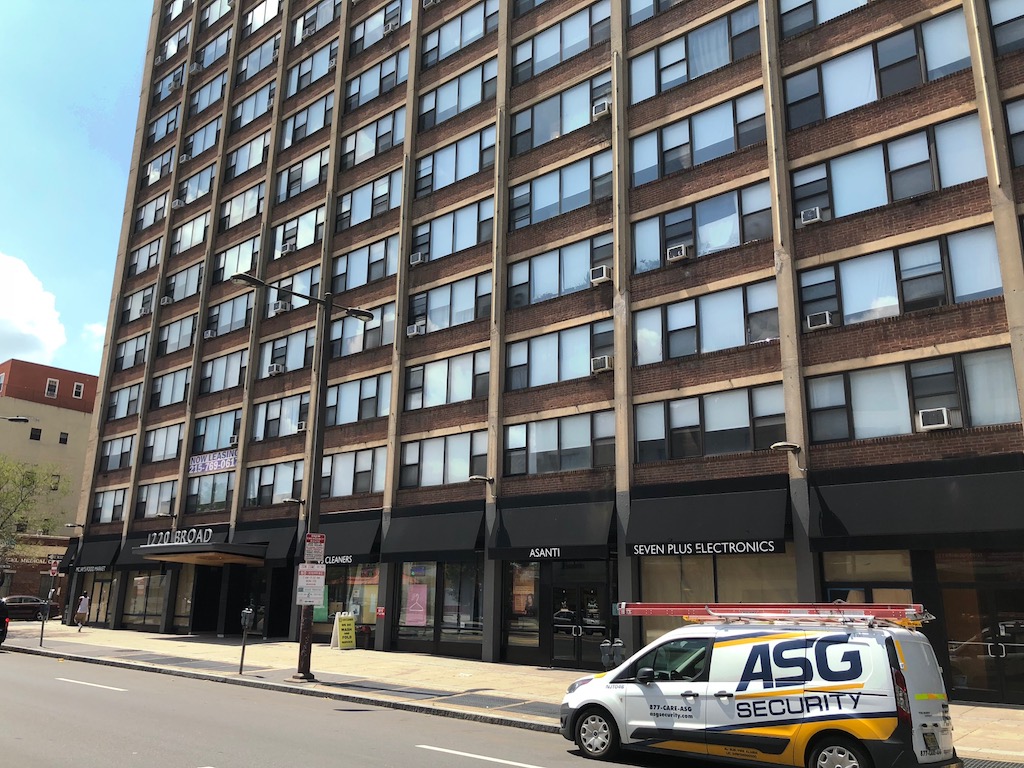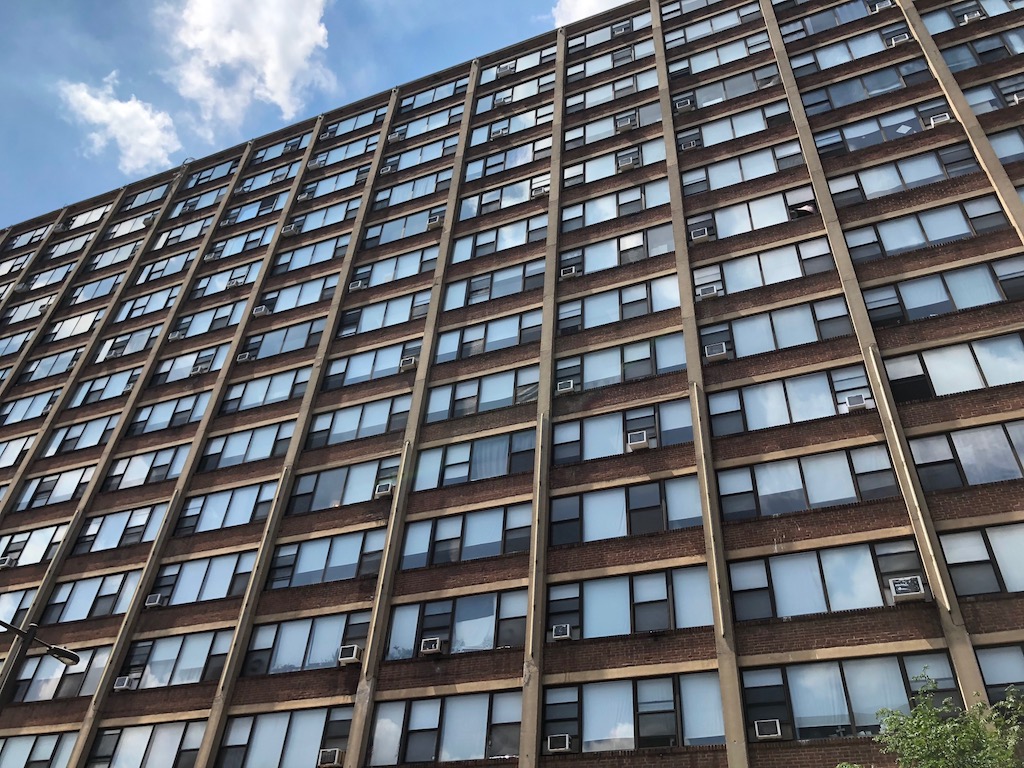The Apartments @ 1220 building at 1220 N. Broad St. has a history much more interesting than its boring mid-20th century facade. This apartment tower, originally known as the Flamingo Apartments, was both lauded in its early days for being the first interracial residential tower in the city, but also derided for being part of a famous scandal related to the Federal Housing Administration.
Section 608 of the National Housing Act, added in 1941, incentivized private developers to build moderately-priced housing, aimed mostly at war veterans, with FHA insuring 90% of the construction mortgage. In 1947, Section 608 was altered to allow a much higher per-unit subsidy and gave developers some leeway in estimating their construction costs. Several developers found a way to take advantage of this by grossly overestimating their construction costs and pocketing the difference. The developers would then default on the loan and keep the cash.
Dr. Daniel Gevinson, a dentist out of Washington, D.C., retired from dentistry to become a Section 608 developer. By 1949, the federal government got wise on the Section 608 scam and froze the “windfalls” the developers could receive. Many developers quit building Section 608 projects, but some figured they could find a roundabout way of getting those surplus funds, or just wait out the freeze and collect later. By this point, the FHA was starting to approve fewer new Section 608 projects, but favored projects that were geared towards minority populations. For his eighth Section 608 project, Dr. Gevinson eyed Philadelphia, purchasing a large lot at the corner of Broad and Stiles streets with a design from Camden-born architect John H. Graham Jr for a 137-foot, 15-story luxury apartment house to be fully marketed and occupied by well-to-do African-Americans (the Federal Government did not outlaw racial discrimination in housing until 1968). Gevinson paid a $1,000 down payment on a $2,533,800 loan and the total construction cost was $2,252,594 (!!!). Once revealed, newspapers reported that Gevinson pocketed $180,300 when everything was said and done.
Construction of the Flamingo Apartments began in October 1950 and tenants started moving in roughly a year later. Though the apartment building was being marketed exclusively to African Americans, there were more inquiries from prospective caucasian tenants. As a result, Gevinson attempted to change his agreement with the FHA to make the building an all-white facility, but was rejected. Due to pressure from Gevinson and some social groups in Philadelphia that were excited about the prospect of a luxury apartment building targeted toward African Americans, the building ultimately became the first interracial apartment building in the city and was heavily advertised as such.

One year after opening, 95% of the building was leased and it was considered a great success. Eleanor Roosevelt mentioned the building and Dr. Gevinson in a speech about the international view of how Americans treat minorities. Jazz greats Arthur Prysock, Charlie Parker, Fats Navarro, and Cliff Brown all rented apartments there. Despite all the praise, the residents were of a different social class than the vast majority of the residents of the surrounding neighborhood, and the animosity between the apartment tenants and nearby row house residents was well-known.
In 1955, the property was sold to a Nelson Hause along with several silent partners, with the original FHA loan still at 2,533,800. Hause raised rents and vacancy increased to 22%. In response, Hause furnished a portion of the apartments and was able to rent them out on a weekly basis. Though he was able to keep vacancy down, the transient nature of the new residents damaged the sense of community within the building.
In 1957, Hause sold the property to Leon Slidell, who changed the name of the property to Ivy Hall Apartments. In 1960, the FHA loan defaulted and the property was sold again via public auction to the William Penn Realty Corporation. The name of the building was then changed to the North Tower Apartment.
The building would go through several ownership changes in the coming decades, along with another name-change to the Philadelphia Regency. The development of its section of North Broad ebbed and flowed during this time– the demolition of the Majestic Hotel in 1971, the arson at the Widener Mansion in 1980, and the loss of other fine Gilded Age buildings on the row brought down the block architecturally while general urban disinvestment altered the area in other ways.
In 2007, the current owners, a group of no less than six individual entities, purchased the property for $20.5M. The former Flamingo Apartments went through an extensive renovation in 2008 both inside and out, up to and including pink accent lighting and a re-branding as the Apartments @ 1220. Now aimed at Temple students, the apartment tower is living yet another life in the North Broad Street of a new era– one where another student apartment tower is being built only a block away.



— Dennis Carlisle

Leave a Reply